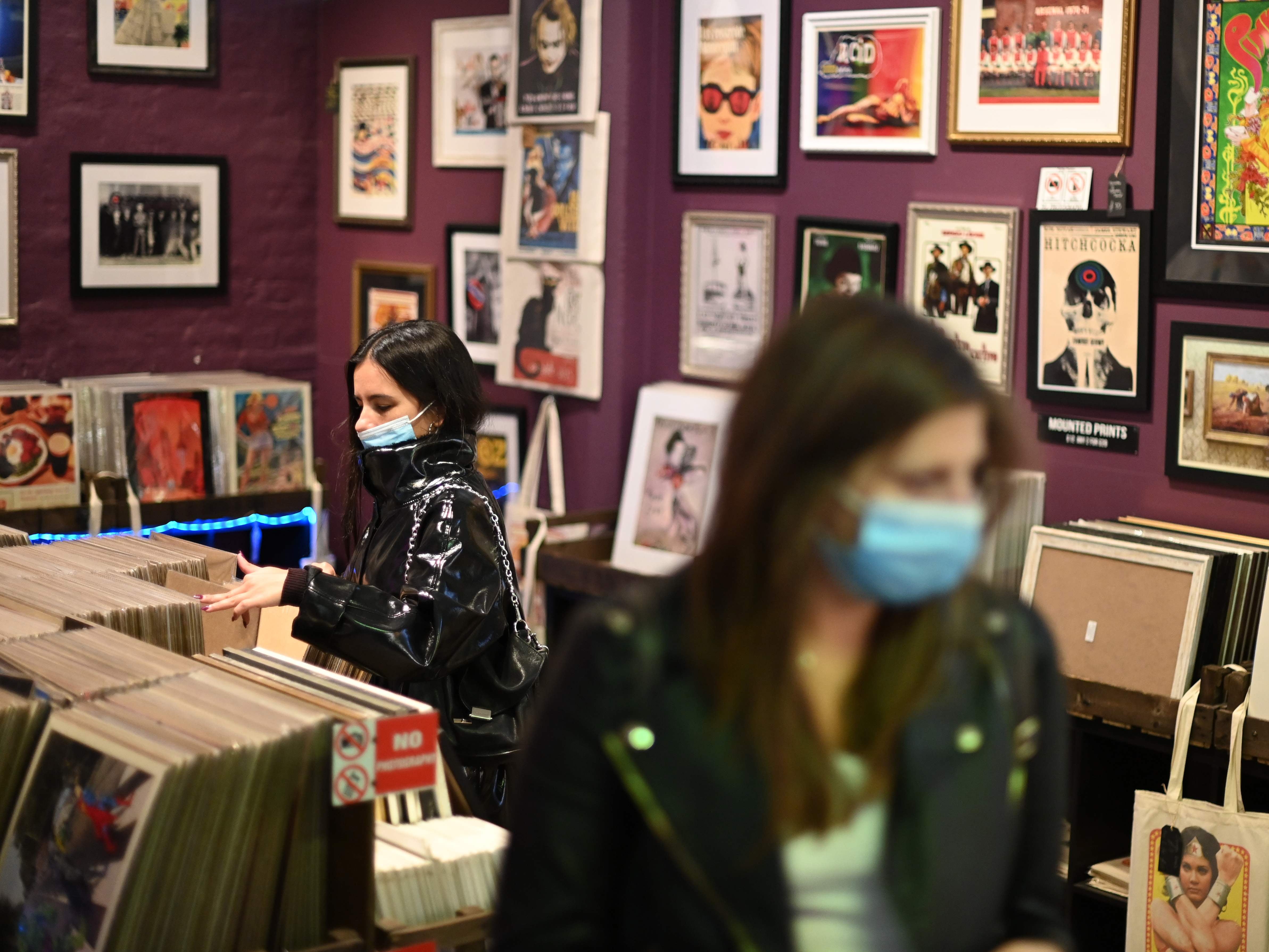Coronavirus: Third wave ‘entirely possible’, expert warns
‘We need some kind of cavalry on the horizon,’ government advisor says

Your support helps us to tell the story
From reproductive rights to climate change to Big Tech, The Independent is on the ground when the story is developing. Whether it's investigating the financials of Elon Musk's pro-Trump PAC or producing our latest documentary, 'The A Word', which shines a light on the American women fighting for reproductive rights, we know how important it is to parse out the facts from the messaging.
At such a critical moment in US history, we need reporters on the ground. Your donation allows us to keep sending journalists to speak to both sides of the story.
The Independent is trusted by Americans across the entire political spectrum. And unlike many other quality news outlets, we choose not to lock Americans out of our reporting and analysis with paywalls. We believe quality journalism should be available to everyone, paid for by those who can afford it.
Your support makes all the difference.A third wave of coronavirus is “entirely possible”, with lockdowns only deferring the problem, an expert has warned.
Mark Woolhouse, professor of infectious disease epidemiology at the University of Edinburgh, said that while strict measures stop the immediate crisis and quickly reduce transmission, they do not make the virus go away.
Speaking on BBC One's The Andrew Marr Show on Sunday he said that modelling had previously shown it was “entirely possible” that a second lockdown would be needed in September.
When asked if there could be a third wave of coronavirus, he said: “That's entirely possible.
“The scenario I mentioned earlier does actually include this possibility and this is just another demonstration of what I was saying earlier that lockdown doesn't solve the problem, it defers it.
“That's why we need some kind of cavalry on the horizon or alternatively, if you think that vaccine is not going to be available in six months or 12 months or two years or whenever, it means that we do need alternatives.
“The alternatives that have been mentioned so far are things like the Moonshot programme of mass testing.”
Prof Woolhouse, who is a member of the Scientific Pandemic Influenza Group on Modelling (Spi-M), a subgroup of Sage, said that while a vaccine could be available in six months it was unlikely that it could be rolled out at a mass scale in that time period.
He said that Sweden had shown that the virus could be controlled without a “strictly enforced lockdown” and that restrictions needed to be sustainable in the long-term.
He added: “I'm afraid I don't see a way through this in the coming months and even years where we don't have some restrictions in place. This is the new normal.”
When asked if the government had modelled any other options to a national lockdown at the start of the pandemic, Prof Woolhouse said “basically, no”.
He also said he did not know of any modelling on the effects of closing pubs at 10pm.
He added: “Models don't have that sort of granularity. You can't explore in detail different closing times of pubs or even different versions of the 'rule of six' we have, the differences between indoor and outdoor transmission.
“So these sort of things have to be judgment calls based on the public health evidence rather than the modelling.”
But culture secretary Oliver Dowden told Sky News's Sophy Ridge On Sunday there was “definitely science” behind the 10pm curfew for pubs, bars and restaurants.
Mr Dowden said: “There is definitely science behind it, that's why we're requiring people to be seated in pubs and restaurants, so that stops the flow of them to and from the bar.
“We are reducing the closing times to stop people staying later and drinking. And the point about all of this is that everyone has their part to play. If we all play by the rules, we can ensure that there are not further, more draconian restrictions.”
Infectious disease modelling expert Professor Graham Medley said on Saturday he did not recall the curfew being discussed by Sage.
Prof Woolhouse also said that outbreaks at universities were “entirely predictable”.
His comments come as the government came under pressure to guarantee young people are not confined to their halls of residence over the festive period because of Covid-19 outbreaks on campuses.
Thousands of students are currently self-isolating in their rooms following a surge in cases at institutions including Glasgow, Manchester Metropolitan and Edinburgh Napier.
Prof Woolhouse added: “There was some very nice modelling done by Spi-M colleagues at the University of Bristol, what they showed quite clearly was that the risk areas were particularly first-year students in halls of residence as well as face-to-face teaching.
“So this was very predictable and it was modelled.”
Additional reporting by PA



Join our commenting forum
Join thought-provoking conversations, follow other Independent readers and see their replies
Comments